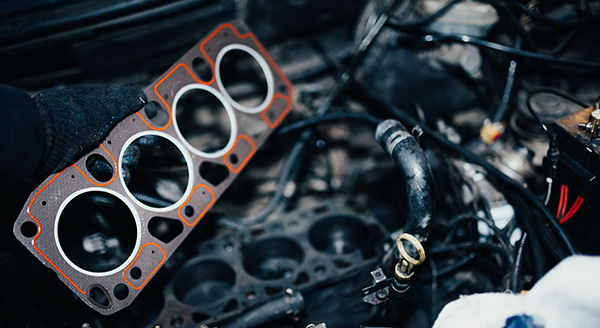
Car troubles can be stressful, especially when your engine starts overheating. One of the lesser-known yet severe causes of engine overheating is a blown head gasket. If you’ve ever faced this issue or are curious about the relationship between a blown head gasket and engine overheating, you’re in the right place. Let’s break it down and see how this critical component can cause big problems under the hood.
What Is a Head Gasket and What Does It Do
Before diving into the connection between a blown head gasket and engine overheating, it’s important to understand what a head gasket does. The head gasket is a crucial part of your engine that sits between the engine block and the cylinder head. Its main job? Sealing off the combustion chamber and preventing engine fluids—like oil and coolant—from mixing together. Essentially, it ensures your engine operates smoothly by maintaining compression and keeping fluids where they belong.
However, because it’s exposed to high temperatures and pressure, the head gasket can wear out over time or fail suddenly. When that happens, the result is a "blown head gasket."
How Can a Blown Head Gasket Cause Overheating
When a head gasket blows, it compromises the seal between the engine block and cylinder head. This can lead to several issues that contribute to overheating:
Coolant Leakage
A blown head gasket can cause coolant to leak out of the system. If the coolant levels drop significantly, there’s not enough fluid to absorb and dissipate the heat from the engine. Without proper cooling, your engine will start to overheat.
Coolant and Oil Mixing
One of the more dangerous consequences of a blown head gasket is the mixing of coolant and oil. When these fluids mix, both lose their effectiveness. The oil, which is supposed to lubricate engine components, becomes contaminated, leading to increased friction and heat. At the same time, the coolant loses its ability to cool the engine efficiently.
Combustion Gases Entering the Cooling System
Another way a blown head gasket can cause overheating is by allowing combustion gasses to leak into the cooling system. When these gasses enter the system, they displace the coolant, causing air pockets to form. These pockets of air prevent the coolant from circulating properly, which leads to the engine overheating.
Signs That You May Have a Blown Head Gasket
A blown head gasket doesn’t just cause overheating—it comes with other symptoms you should watch for. Here are a few signs that your head gasket may be the culprit behind your overheating engine:
White Smoke from the Exhaust
One of the most obvious signs of a blown head gasket is white smoke coming from your exhaust. This happens because the coolant is leaking into the combustion chamber and burning off, producing a thick white smoke.
Milky Oil
If you check your oil dipstick and notice that the oil looks milky or frothy, that’s a sign that coolant and oil are mixing—another indicator of a blown head gasket.
Overheating Even After Replenishing Coolant
If you find yourself constantly topping off the coolant but your engine is still overheating, there’s a good chance that the coolant is leaking due to a head gasket issue.
Bubbling in the Radiator or Coolant Reservoir
When combustion gasses enter the cooling system, you might see bubbles in the radiator or coolant reservoir, even when the engine is cold.
What Should You Do If You Suspect a Blown Head Gasket?
If you suspect that a blown head gasket is causing your engine to overheat, you need to address it as soon as possible. Driving with this issue can lead to severe engine damage. The first step is to stop driving the car and have it inspected by a professional. Depending on the severity of the issue, you may need a full-head gasket replacement or other repairs to get your engine back in good shape.
It’s worth noting that fixing a blown head gasket can be expensive, but catching the problem early can prevent additional damage to the engine and save you money in the long run. If your car is showing signs of overheating and you suspect a head gasket issue, it’s crucial to get it looked at before things get worse.
Can You Prevent a Blown Head Gasket
While there’s no foolproof way to prevent a blown head gasket, regular maintenance is your best defense. Routine checks on your coolant levels and oil, as well as ensuring your engine stays within the proper temperature range, can help. Keeping an eye on your car’s performance and addressing any issues early on will minimize the chances of a catastrophic failure like a blown head gasket.
Got a blown head gasket? Your car's performance depends on immediate action. Trust Villa Marina Auto Care to provide expert repairs that will get your car back on the road safely. Call us now to schedule a diagnostic check!